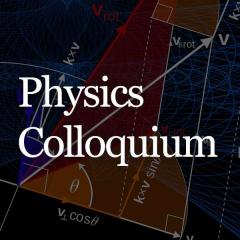Mapping the Milky Way with the stars (un)seen by Gaia
Speaker: Alfred Castro Ginard
Affiliation: Leiden Observatory, Leiden University
Abstract
In this talk, I will present current efforts in mapping our own Milky Way. I will focus on how the wealth of data from the Gaia mission has redefined our understanding of the open cluster population, which is an excellent tracer of different Galactic structures. Particularly, I will review how machine learning methods have improved the detection of open clusters and the characterization of their properties. I will also go through how we use the newly defined open cluster census in a broader Galactic context, by using them as tracers of the Milky Way spiral arms. Finally, I will discuss how we can estimate the Gaia Survey Selection Function, and how completeness studies can be incorporated to have a better insight into our Milky Way.
About Physics colloquium
The Physics Colloquium series hosts a range of speakers from Australia and abroad. The series explores a variety of topics and everyone is welcome to come along. The seminars are open so there is no need to register your attendance.
If you would like to sign up for colloquium announcement emails, you can join the mailing list by sending a blank email to:
- For UQ email addresses: physics-colloquium-others-join@lists.science.uq.edu.au
- For non-UQ email addresses: physics-announce-external-join@lists.science.uq.edu.au
(Note: if you receive physics-all emails, you should already receive these and don't need to sign up again).
Venue
Room: 234

